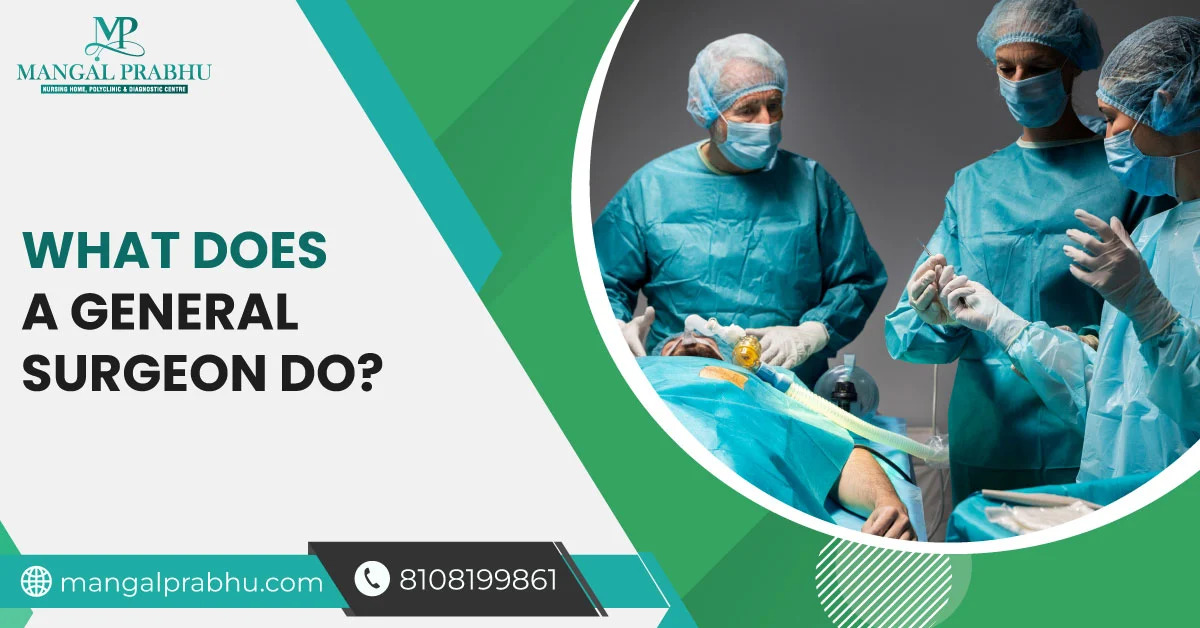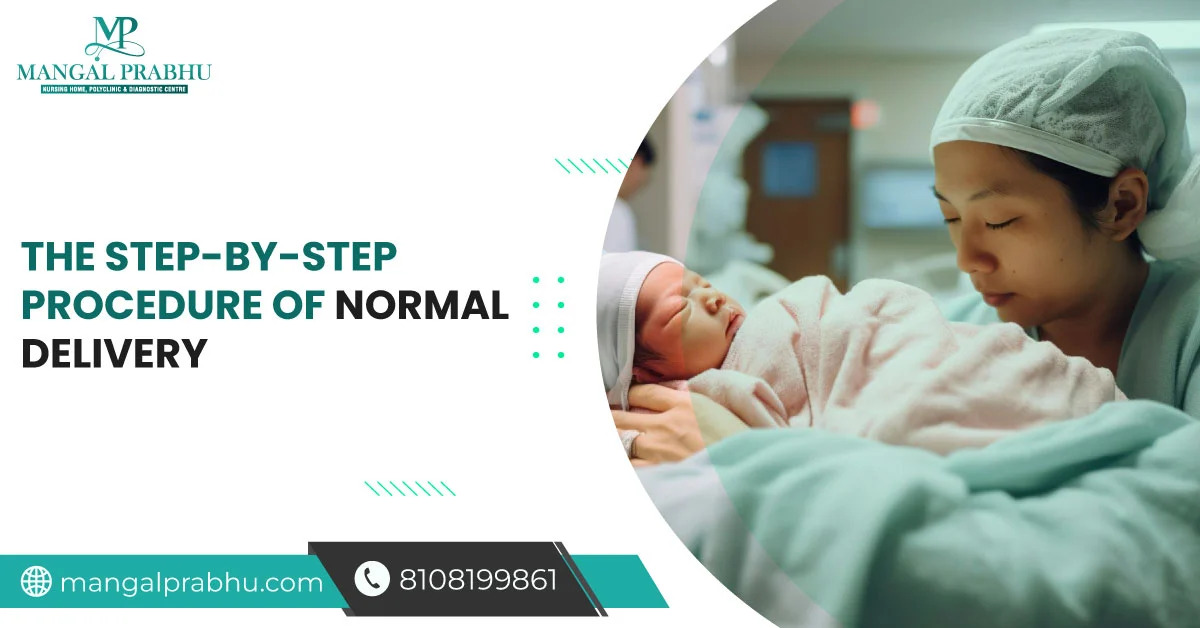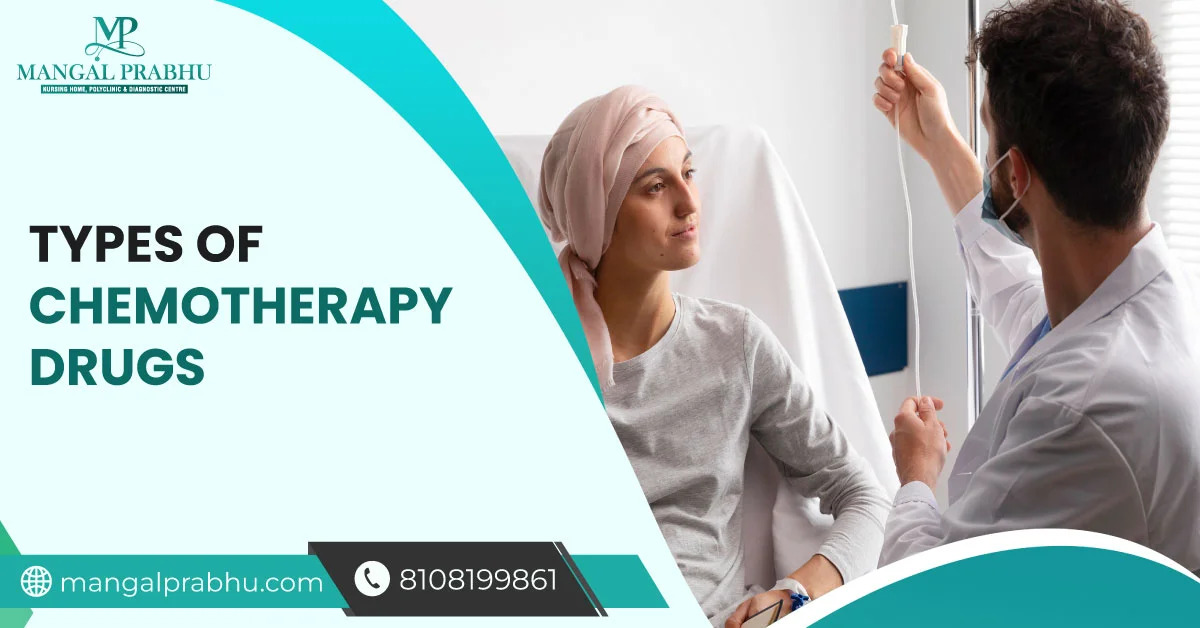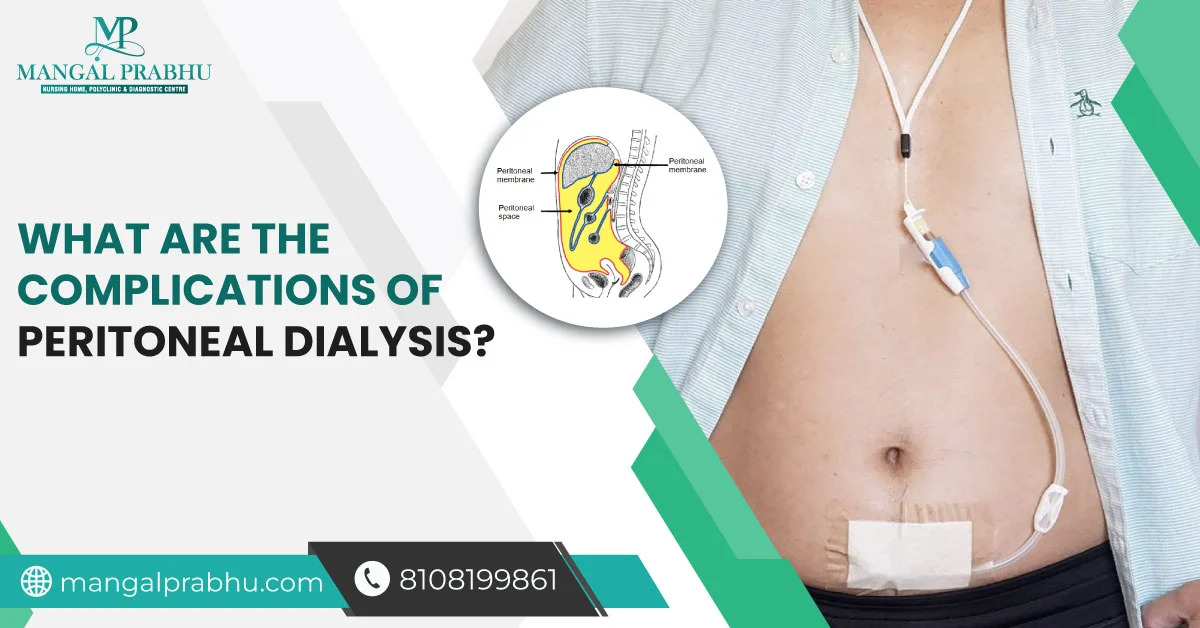
Danger Signs of Pneumonia in Infants?
Newborns are vulnerable to respiratory infections such as pneumonia as their immune systems are weak due to their fragile lives. Looking for a professional consultant in paediatrics from the very beginning is the most crucial step that could be a preventive measure. This article guides the red alert signs and symptoms in infants that should be followed to book an immediate appointment with a qualified pediatrician in Navi Mumbai. Early diagnosis and treatment significantly decrease morbidity and mortality among paediatric pneumonia patients.
Common Symptoms of Pneumonia in Infants
Some common signs babies may demonstrate are coughing, wheezing, grunting while breathing, difficulty breathing, and high temperature or fever. In addition, symptoms such as poor appetite and low energy and activity levels may be observed in infants. If reported early and consulted by a paediatrician in Navi Mumbai, these symptoms can help cure the disease of Infants Pneumonia Treatment in Navi Mumbai more efficiently.
Red Flags and Danger Signs
Parents need to be observant of rapid, shallow breathing or a suffusion of bluish color, especially on the lips and fingertips. Coughing with a lot of retractions or with grunting sounds is also indicative of a serious condition. Infants show their tiredness through lethargy and struggling to wake up. Such symptoms should be taken as a cue to the parents to get the needed treatment from a pediatrician in Navi Mumbai for their kids immediately.
Immediate Actions to Take
The parent should immediately not hesitate to call for an ambulance or take the infant to the nearest hospital or clinic to consult a paediatrician. Providing the baby with relief like warming, sitting upright, and offering oral rehydration with fluids is essential for the baby to recover. Beware of drug operations without the doctor’s advice since they can do more damage than good. It is paramount to introduce infant pneumonia treatment in Navi Mumbai at present.
Prevention and Vaccination
Routine vaccinations recommended by Navi Mumbai paediatricians play a huge role in preventing pneumonia. These include pneumococcal and flu shots. Parents must also maintain hygiene and avoid overcrowding. Regular handwashing, cleaning toys and surfaces, and proper ventilation reduce transmission of infections requiring Infants Pneumonia Treatment in Navi Mumbai in the first place.
Conclusion
Paying attention to and detecting both mild and severe symptoms of pneumonia in infants early is the key to prompt treatment of the disease. To get the best possible outcome for a child suffering from pneumonia, you must consult a paediatrician with experience in this field. Parents and all the caregivers of the children living in Navi Mumbai should prevent and seek medical aid from a certified paediatrician immediately whenever any symptom appears for better results. After all, following the expert recommendations to keep myself clean and healthy helps the baby to stay far from sicknesses and complications.

What Does a General Surgeon Do?
A general surgeon is a certified and licensed healthcare specialist who performs a wide range of surgical procedures. They are different from surgeons specializing in certain fields, like cardiologists (heart specialists), neurologists (brain surgeons), and oncologists (surgeons of cancer). These surgeons perform operations on the abdomen, gastrointestinal tract, musculoskeletal system, and other general body parts. So, when exactly do you need to see a general surgeon in Navi Mumbai, and what’s their role? Let’s find out.
The Role of a General Surgeon
A general surgeon is a specialist in many physical conditions that may or may not require surgical intervention. If they believe the condition is too complicated to be treated, they will refer you to a specialist for the particular disease. Here’s what they do:
a) Surgical Procedures Performed
An experienced surgeon can perform surgical procedures for a medical condition or a cosmetic purpose. They might choose open surgery or perform a laparoscopic procedure, which involves small instruments that give a clear picture of your internal organs. In addition, some general surgeons have embraced robot-assisted surgical procedures to ensure maximum precision and the best outcome with minimal risk of post-surgical complications.
b) Pre and Post-Operative Care
Post-operative care involves the follow-up treatment after a surgical procedure. The level of post-op care a patient needs depends on the type of surgery and their health status. A general surgeon will give detailed instructions regarding what to eat, avoid, and how to take care of the wound. They will also ask you to schedule follow-up appointments for post-operative care.
c) Patient Education and Counseling
You might see a general surgeon for a chronic disease, a severe illness, or a sudden accident. Based on your symptoms and health, they will recommend the most suitable medical treatment. Patient counseling is part of their job. They discuss the available treatment options and determine the most reliable plan that fits your condition.
Common Surgical Procedures Performed by General Surgeons
A general surgeon can perform a vast array of surgical procedures, including:
i) Appendectomy:
A surgery to remove an inflamed appendix. It’s an emergency medical condition that requires immediate removal of the appendix to save the patient’s life. The surgeon can perform it laparoscopically or choose an open surgery.
ii) Breast Surgery:
A general surgeon specializes in breast augmentation, reconstruction, reduction, removal, and lumpectomy. Breast surgery can be a part of a cancer treatment or a cosmetic procedure.
iii) Colorectal Surgery:
Colorectal surgery involves the treatment of your large intestine, i.e., rectum, anus, and colon. A general surgeon might perform a colorectal surgery if you are diagnosed with cancer of the colon and other parts of your large intestine, have polyps, or have inflammatory bowel disease.
iv) Hernia Repair:
A surgery hospital in Navi Mumbai has a general surgeon who can treat nearly all types of hernia. The surgery helps push the bulging hernia back into its original place and involves placing a mesh material that strengthens the weakened tissues.
From removing small skin lesions to performing surgery on the internal organs, a general surgeon does it all.

What is The Best Treatment for Bladder Leakage?
The feeling of urgency to urinate can be quite embarrassing, especially when you are in a public place. It often occurs in people diagnosed with urinary incontinence, a medical condition that makes it difficult for the patient to hold their urine.
It can be caused by pelvic floor diseases, during pregnancy and childbirth, and due to an enlarged prostate (to name a few). You must see a urologist in Navi Mumbai to pinpoint the exact cause of urinary incontinence and choose a treatment that suits your needs and health.
Causes and Risk Factors of Bladder Leakage
The causes can be temporary, such as pregnancy or a chronic medical condition. Sadly, the symptoms last until the root cause is treated. Here are the short-term and long-term causes of bladder leakage:
- Pregnancy: The weight of the baby plus your uterus pressing your bladder down can make it hard to hold urine, thus causing bladder leakage. The symptoms resolve after delivery.
- Urinary Tract Infection: A UTI is an infection of the bladder and kidneys. Your doctor will prescribe antibacterial medication to treat it.
- Diabetes: Diabetes increases your urine frequency, increasing the risk of bladder leakage.
- Menopause: Your pelvic floor muscles get loose and weak during menopause. This affects your bladder function and can lead to urinary incontinence.
Symptoms of Bladder Leakage
The common symptom of bladder leakage or urinary incontinence is the uncontrollable urge to urinate and the leakage of urine (in small amounts or large volumes). This can be occasional or regular, depending on the cause. You might notice the leakage when coughing, sneezing, laughing, or when you are engaged in physical exercises or sports.
Treatment Options for Bladder Leakage
Treatment for urinary incontinence depends on the underlying cause. Your doctor might recommend a combination of treatments to relieve your symptoms.
1) Lifestyle Changes
Sometimes, incontinence occurs because of certain lifestyle habits. For instance, drinking certain beverages in larger than recommended dosages or taking certain medications can cause bladder leakage. Changing these habits can help relieve your symptoms. Moreover, practicing pelvic floor muscle exercises can strengthen your pelvis and improve bladder function.
2) Medications
Medication helps relax your bladder and improves its ability to hold more urine. It also helps empty your bladder at once, so you need fewer trips to the washroom. Anticholinergics are commonly used to reduce urge incontinence. Other medications that may help are alpha-blockers, topical estrogen, and mirabegron.
3) Surgery
If the noninvasive urinary incontinence treatment in Navi Mumbai fails to deliver results, you might require a surgical procedure. A sling procedure involves placing a mesh under your urethra.
It prevents urine leakage due to stress incontinence. If the incontinence is caused by pelvic organ prolapse, surgery to fix the prolapse plus a sling procedure is required to treat the incontinence.
Conclusion
Urinary incontinence occurs because of an existing medical condition or an underlying issue that makes your bladder too weak to hold urine. Talk to your urologist about different treatment options. They will help you identify the best procedure for urinary incontinence based on the underlying cause and your health.

The Step-By-Step Procedure of Normal Delivery
1. Introduction
Women can enjoy motherhood as an unbelievable moment that challenges what you thought or realized during the entire nine months of pregnancy and forever changes the life of your baby and yourself. The best doctor for normal delivery in Navi Mumbai at Mangal Prabhu Hospital, uses the natural process of birth in which a baby is born through the birth canal without the required surgical measures being undertaken. Thus, this guide will help you to understand the detailed processes of normal delivery.
2. What is Normal Delivery?
Vaginal birth is a normal phenomenon that entails the dilation of the cervix through the birth canal until the mother delivers the baby. It gives the most advantage when the mother and baby are both healthy and do not require a cesarean part unless the mother or baby faces complications based on unforeseen occurrences.
3. The Step-By-Step Procedure of Normal Delivery:
3.1. Pre-Labor Signs
The labor may begin with some signs of the pre-labour period that show the body has already started preparation for the delivery.
- Lightening: The baby lessons the birth canal in preparation for labor
- Braxton Hicks contractions: It is a sort of irregular and soft-kick.
- Cervical changes: The opening begins to soften, thin out, and dilate.
- Mucus plug discharge: The loss of the mucus plug, the kind of plug that seals the cervical opening during pregnancy.
3.2. Labor Contractions
Actual labor begins with regular and more intense contractions at regular intervals. These contractions serve to mitigate cervix dilatation and lower the baby’s positioning in the pelvic cavity.
- Early Labor: Contractions can remain mild and irregular, lasting for 30-45 seconds occasionally, unless they occur on average every 5-30 minutes.
- Active Labor: Contractions will get stronger, and while you’ll activate, it lasts for about 40-60 seconds that will end with a 3-5 minute break.
- Transition Phase: Dilation extends to the cervix completely. The contractions lasted approximately 60-90 seconds with an inter-contraction interval of 2-2.5 minutes.
3.3. Delivery Process
As soon as the cervix stretches up to its full thickness, the labor starts.
- Pushing: The baby slips into the birth canal with the help of the abdominal muscles after contraction.
- Crowning: At the time of delivery for a woman, the baby’s head becomes visible on the vaginal orifice.
- Birth: At last, a little skull and the neck of the baby in the mom’s lap appear, the shoulders and the body succeeding them over time.
3.4. Post-Labor Care
Post-labour care includes:
- Delivery of the Placenta: The placenta could be removed by the doctor through the birth canal shortly after the baby’s delivery.
- Mother’s Recovery: The mother may not go through the examination just for the postpartum complications, but she is in pain when there are cuts or stitches during the episiotomy.
- Newborn Care: Then the doctor measures, dries up, and places the newborn on the mother’s breast, and the mother starts milk feeding.
4. Conclusion
The normal delivery process is a complex but natural event that involves several stages. Mothers-to-be must be up-to-date with the respective stages of labor, and they have to collaborate with the best Maternity Hospital in Navi Mumbai, like Mangal Prabhu Hospital, to guarantee a straightforward delivery with the minimum risks for mother and baby.

What are the Causes of Blood Cancer in Adults?
1. What is Blood Cancer?
Blood cancers block the ability of normal developing blood cells to produce important cells in the body, and, as a result, complications like infections, anemia, and excessive bleeding for patients may arise. Even though the actual causes of blood cancer are yet unknown, scientists suggest that it’s the cooperation between the genetic and the environmental components that determines it.
However, consulting with the best Hematologist in Navi Mumbai can help you eliminate the potential risk of blood cancer. This article comprehensively takes a look at blood cancer, its symptoms, diagnosis options and treatment modalities.
2. Causes of Blood Cancer in Adults
a. Genetic Factors
Inherited genetic mutations can increase the risk of cancer, disrupting the harmonious growth and division of blood cells and paving the way for cancerous insurgencies.
b. Viral Infections
The Epstein-Barr virus (EBV) and its cohorts can sow discord within the immune defenses, creating fertile ground for the malignant transformation of blood cells.
c. Chemical Exposure
Chemicals like benzene and pesticides play a villainous role. Their prolonged exposure can open dramatic mutations within blood cell DNA, increasing the risk of blood cancer.
d. Age and Gender
Life’s passage leaves its marks, and advancing age is a prominent element in the blood cancer journey. Yet, gender, too, has its say, with certain types of blood cancer favoring the script of masculinity.
e. Lifestyle Factors (Smoking, Alcohol)
The smoke of tobacco and the intoxicating allure of alcohol can blur the lines of immune vigilance, increasing the risk of cancer.
3. Symptoms of Blood Cancer
The manifestations of blood cancer can appear diverse according to the type of the disease. Common symptoms include:
- Fatigue and weakness
- Frequent infections
- Easy bruising or bleeding
- Unexplained weight loss
- Swollen lymph nodes
- Breath shortens, or nights become even more uncomfortable than before because of the night sweats.
- Bone pain or tenderness
4. Diagnosis and Treatment Options
If you notice any kind of clinical symptoms of blood cancer, you should immediately consult the best Blood Cancer Treatment Hospital in Navi Mumbai, like Mangal Prabhu Hospital who will provide you with full examinations to determine the cause. To diagnose blood cancer, your doctor may recommend several diagnostic tests like blood tests, bone marrow aspiration and biopsy, and imaging techniques (X, CT, or PET scans).
The exact treatment approach for blood cancer significantly depends on different factors that concern the type of blood cancer, its stage and your health status. Common treatment options include chemotherapy for calculated strikes, radiation for focused energies, targeted therapy for precision, and stem cell transplantation for the transportation of life’s marrow—all stand as pillars of hope against this relentless cancer.
5. Conclusion
In the tapestry of life’s complexities, blood cancer stands as a testament to resilience and exploration. Understanding its causes unveils not just scientific mysteries but also prompts a reflection on choices and their impacts. Considering the best hospitals like Mangal Prabhu Hospital, their prevention, early detection, and compassionate care can help you fight blood cancer and its potential risk.

Does Childhood Asthma Go Away?
Asthma is a chronic lung condition that makes breathing harder. The airways, which carry air in and out of the lungs, become too narrow to carry enough air into the lungs. In children, asthma can cause wheezing and coughing.
Childhood asthma is also known as pediatric asthma, If your child shows symptoms of asthma, it’s important to see an asthma treatment specialist in Navi Mumbai. The condition can be life-threatening if left untreated for a long time. Let’s examine the symptoms of childhood asthma and whether it can be cured on its own.
Symptoms of Childhood Asthma
Asthma symptoms can vary from child to child. Here’s what most parents notice in their kids diagnosed with asthma:
- Coughing occurs at night, in the morning, or when your kid is involved in a physical activity. It can also be triggered by certain activities or food.
- Difficulty breathing
- Extreme fatigue
- Weakness
- A wheezing noise when your child inhales and exhales air
- Pain and tightness in the chest
Causes of Childhood Asthma
The exact cause of childhood asthma is not known, but researchers believe that a family history of asthma can increase a child’s risk of developing the same condition. Moreover, exposure to allergens or environmental factors is often associated with an increased risk of asthma. The condition is more common in children born prematurely or those who catch a respiratory infection.
Treatment Options for Childhood Asthma
Children’s asthma treatment in Navi Mumbai mainly consists of short-term and long-term medication. These are often similar to those prescribed to adults but in different dosages.
Your healthcare provider will develop an asthma management plan for your child. It will explain what to do when your child gets an asthma attack, how to manage the symptoms, how to keep your child away from triggers, and what can be done for long-term prevention.
They must carry inhalers, which open your child’s airway immediately during an asthma attack. Medications are also used to reduce inflammation in the airways to prevent them from narrowing.
Does Childhood Asthma Go Away?
Asthma is a lifelong disease that can be managed. In almost half of the children diagnosed with asthma, the symptoms disappear as they reach adolescence. Sadly, these kids tend to experience the symptoms again in their 30s and 40s. There’s no sure way to tell whether your child can outgrow asthma or not.
Factors Influencing the Severity of Childhood Asthma
The severity of childhood asthma depends on the triggers that can cause an asthma attack. Identifying these triggers and keeping your child away from them can help lower their risk of developing asthma or making it worse. Here are a few other ways that can help manage your symptoms:
- Preventing mold and mildew growth in your home
- Maintaining your child’s weight
- Keeping them away from dust, dirt, smoke, and air pollution
Untreated asthma or exposure to the triggers can lead to an asthma attack in your child, which can develop gradually or suddenly. The symptoms get much worse, and there’s a chance they might need to be hospitalized immediately.

Types of Chemotherapy Drugs
Chemotherapy—the most commonly used treatment approach for cancer—is believed to kill most types of the fastest-growing cells in the human body. The treatment involves different types of drugs, which are effective for various forms and stages of cancer.
These drugs, however, come with certain side effects, as they tend to kill healthy cells, too. It’s important to discuss the benefits and potential risks of chemo with a cancer specialist in Navi Mumbai before considering it. In the meantime, let’s see what chemotherapy involves and how it treats cancer.
Common Types of Chemotherapy Drugs
Chemotherapy drugs are categorized into the following types:
i) Alkylating Agents:
These cancer-killing cells destroy the DNA within the rapidly growing cells, thus preventing their multiplication and growth. The drugs are mainly used for cancers that develop gradually. Examples of alkylating agents include melphalan, temozolomide, cisplatin, busulfan, and Chlorambucil.
ii) Antimetabolites:
These drugs work by pretending to be the nutrients a cell requires for growth, eventually destroying the cancer cells by starving them to death.
iii) Anti-tumor Antibiotics:
These antibiotics destroy the DNA cells that tend to replicate quickly.
iv) Plant Alkaloids:
Mitosis is a medical procedure that affects the ability of cancer cells to grow and divide. Plant Alkaloids, also called mitotic inhibitors, contain the same compound that plants use to protect themselves from predators.
How Chemotherapy Drugs Work
Normal cells in the human body follow a cell cycle, copying DNA material to multiply and then dying when their work is done. Cancer cells, however, never die. They keep replicating the DNA within them and divide rapidly, spreading throughout the body.
These cells form tumors, which, in turn, affect your healthy organs. The goal of chemotherapy treatment in Navi Mumbai is to disrupt this cell cycle by killing cancer cells or interfering with their ability to divide.
Benefits of Chemotherapy Drugs
- It kills cancer cells so that they don’t grow and spread.
- It can shrink the tumor so that your surgeon can surgically remove it.
- The treatment increases your chances of living a healthy and longer life.
Potential Side Effects
While chemotherapy is an effective treatment for different types of cancers, it comes with its share of side effects. The treatment kills other fastest-growing cells in your body, such as the blood-forming cells or the hair follicles. The procedure can lead to:
- Hair loss
- Mouth ulcers
- Digestive issues like vomiting, diarrhea, and constipation
- Loss of appetite
- Fatigue
Tips for Managing Side Effects
Your healthcare provider will prescribe anti-nauseous drugs that can help fight nausea and vomiting. Likewise, depending on your symptoms, they will recommend medications that keep your digestive system in good shape and prevent other side effects. Here’s what else may work:
- Take ample rest
- Practice meditation, yoga, and exercise daily
- Eat small and frequent meals
- Use high-quality hair care products to keep your scalp moisturized and nourished
- Consider counseling
Conclusion
Chemotherapy has saved the lives of many cancer patients. The disease, which was once considered life-threatening, is now treatable with chemotherapy. Chemotherapy can be used as a standalone procedure or in conjunction with surgery and radiation therapy for the best outcome.

How to Heal Ligaments Faster?
Joints are complex systems of delivery consisting of string wire-like fibers named ligaments. These ligaments, despite being tough, still cannot be regarded as impregnable. They can break up and have sprains that may cause them pain and limit their motion. Thus, the best Orthopedic Hospital in Navi Mumbai can help an individual quickly diagnose and get the best possible treatment without any hassle. However, this guide takes up the issue of ligament injuries, revealing the tips of fast recovery and joint maintenance in the context.
1. What are Ligaments?
Ligaments allow stability to joints and are nothing like the strength of sturdy ropes connecting bones in your body. They do most of the job by inherently serving as the core support structures that hold the joints together while keeping any excessive motion at bay, which could lead to injury.
2. Causes of Ligament Injuries
- Sports injuries, such as twisting or overextending a joint during physical activity
- Accidents or falls that put stress on the ligaments
- Repetitive stress on the joints, common in occupations requiring repetitive motions
- Aging, which can weaken ligaments over time
3. Symptoms of Ligament Injuries
- Pain, especially when moving the affected joint
- Swelling and tenderness around the injured area
- Bruising or discoloration
- Instability or a feeling of the joint giving way
4. Risk Factors for Ligament Injuries
- Performing feet-on-ground activities or heavy sports, if not prepped or warmed up well, can be dangerous.
- Previous history of ligament injuries.
- Being overweight or obese can strain the joints.
- Having weak or imbalanced muscles around the joints.
5. How to Heal Ligaments Faster?
i) Proper Rest and Recovery
Grant your injured ligament the gift of rest, avoiding activities that exacerbate discomfort. Embrace aids like crutches or supportive braces to ease pressure.
ii) Ice Therapy
Ice becomes a soothing balm, applied regularly to the injured joint to quell swelling and alleviate pain.
iii) Compression
Grid up the injured area with bandages which have a squeezing force, and this fosters reductions of volume and proffers support.
iv) Elevation
Lay the healing member above the heart position when left alone (i.e. during rest periods) and watch blood flow improve through the reduction of swelling.
v) Physical Therapy
Work with a top-notch Orthopedic Doctor in Navi Mumbai at Mangal Prabhu Hospital who formulates treatment plans that propagate the development of supporting muscle.
vi) Medications
Medications help in reducing pain and get rid of inflammation when you consult your doctor.
vii) Surgical Interventions (if necessary)
In the worst cases, when ligament strength is available in hair’s width, the use of surgery reestablishes joint stability and function.
6. Tips for Preventing Ligament Injuries
- Warm-Up Rituals: Think of warm-ups before the exercise as the thing that prepares your muscles and ligaments for the challenges ahead.
- Weight Management: Maintaining a healthy weight would lessen the excess stress on your joints and ligaments.
- Mindful Movement: Avoid abrupt, uncontrolled movements, which can lead to some strain on your ligaments and keep going with smooth and soft motions instead.
7. Conclusion
Through the practice of rest, compensation remedies, prevention of injuries, and considering Mangal Prabhu Hospital, not only will you heal the ligaments faster, but also you will through a way build up the path of healthy joints to last forever.

What Are the Complications of Peritoneal Dialysis?
What is Peritoneal Dialysis?
Peritoneal dialysis is a home-based treatment conducted with a dialysis machine that is placed on the umbilical walls (termed as peritoneum). Then, a doctor at Dialysis Center in Navi Mumbai transfers fluid solution known as dialysate into the abdominal cavity through a catheter, within which there are blood vessels in the peritoneum and waste products & excess fluids go from the blood vessels pass into the dialysate.
However, To ensure that this program is successful, it is essential to consider every little detail of the topic to deal with complications and achieve general patients’ well-being in the peritoneal dialysis program.
Complications of Peritoneal Dialysis
Complications which are related to the peritoneum may arise due to the patient’s state of health if the adverse conditions endanger their life and the technique used for this technique. However, complications differ from infectious to non-infectious. Infection, inefficient dialysis, and Peritonitis are some of the common hurdles in routine life which may lead to kidney failures.
Common Complications of Peritoneal Dialysis
1. Infection
Infection is very much a risk factor for patients who are on peritoneal dialysis. The catheter entry site and the lower abdomen (peritoneal cavity) can be the sites of infection. Symptoms that may be redness, swelling, pain, and drainage around the catheter site, as well as general malaise and fever, are usually associated with a lot of infections. Immediate administration of antimicrobials is a critical first step in the management of the illness.
2. In adequacy
Incomplete dialysis occurs when the dialysis process does not sufficiently clean the body of bad substances and excess liquid. The result can lead to swelling, increases in blood pressure, and an imbalance in the electrolytes. Adjusting the dialysis regime or changing to a different type of dialysis can be helpful in eliminating inadequacy.
3. Peritonitis
Peritonitis, an orchestration of inflammation within the peritoneum, emerges as a dramatic crescendo in this symphony of challenges. Symptoms like abdominal pain and cloudy dialysate are some of its causes. Act promptly with antibiotics or get the best possible treatment from Mangal Prabhu Hospital to quickly eliminate the potential risk of this issue.
Preventing and Managing Complications of Peritoneal Dialysis
Complications occasionally take center stage in peritoneal dialysis, demanding attention and strategic intervention. Some of the preventing and managing tips offered by the best Multispecialty Hospital in Navi Mumbai are:
i) Proper Technique and Care
From the gentle touch of catheter care to the meticulous attention to dialysis exchanges, it becomes a brushstroke in the masterpiece of prevention. Patients become virtuosos of technique, mastering the artistry of prevention to keep complications at bay.
ii) Regular Monitoring and Follow-Up
Regular check-ins with healthcare unveil insights into dialysis adequacy and overall well-being. These appointments help to guide patients through the intricate nuances of their PD journey.
iii) Collaboration with Healthcare Team
Collaboration with healthcare transforms challenges into triumphs. Nurture open communication, share concerns, and let the healthcare team orchestrate the best care composition for you.
Conclusion
In the grand symphony of peritoneal dialysis, complications are just fleeting notes in a symphony of resilience. By arming with knowledge, honing techniques, and harmonizing with the best Mangal Prabhu Hospital healthcare allies, you can rewrite the narrative.

Breast Cancer Stage 1 Symptoms & Treatment Options
Breast cancer is an extensive issue that should have to be dealt with as initially as possible in order to prevent terrible future outcomes. Breast cancer has various stages among its stages. The breast cancer stage has its significance because early detection of breast cancer can make a whole lot of difference.
What is Breast Cancer Stage 1?
Breast cancer stage 1 is the starting stage of the disease; it is set apart in the presence of cancerous cells, which can be in the breast tissues or nearby lymph nodes. Cancer Specialists in Navi Mumbai treat patients with breast cancer with the best care; in the beginning phase, the tumor’s size is usually small; on measuring, it is shown to be not more than 2 centimeters in diameter and does not spread beyond the size of its origin.
Common Symptoms of Breast Cancer Stage 1
It is possible that the symptoms of stage one breast cancer can not be noticed as it is too small. However, there still are changes that can be noticeable; these include the presence of a lump or mass in the breast, a change in breast size or shape, nipple discharge(other than breast milk), breast skin changes like redness, puckering, dimpling and continuous breast pain. It is crucial to understand that these changes can be an indication of an early stage of breast cancer. If you face any of these symptoms, then you need to visit a healthcare professional like Mangal Prabhu Hospital to get an outstanding treatment.
Also Read: Understanding Chemotherapy for Breast Cancer
Diagnosis and Treatment Options for Stage 1 Breast Cancer
Often, Diagnosis is effective for managing breast cancer stage 1. Diagnosis commonly includes a combination of imaging tests like mammograms, ultrasound, MRIs and tissue biopsies to make sure there is any presence of cancerous cells and the stage of the disease.
Treatment for 1st stage cancer can be different to different individuals as it is based on factors like tumor size, overall health and hormone receptor status. The common procedure is surgical intermediation, such as lumpectomy(removal of the tumor and a small margin of surrounding tissue) or mastectomy (removal of the entire breast). Moreover, therapy, like radiation therapy and chemotherapy, is done to find and remove any remaining cells that can lead to breast cancer again. It is important to get treatment from a specialist. Breast Cancer Treatment in Navi Mumbai offerstop-notch handling, for that matter.
Living with Stage 1 Breast Cancer: Lifestyle Changes and Support
The news of diagnosis is indeed a news of fear and uncertainty. Nevertheless, suitable medical treatment and adopting a better lifestyle can help in overall well-being and recovery. It is important to avoid tobacco and alcohol consumption and intake of others that include maintaining a nutritious diet, fruits, vegetables, lean protein and whole grains, involving yourself in physical activity and managing stress through relaxation techniques.
Conclusion
You can visit Mangal Prabhu Hospital if you face any symptoms to get treated as soon as possible; being concerned about the awareness of potential symptoms and having conscious healthcare can help in detecting stage 1 breast cancer that can avoid bigger surgeries in future.
